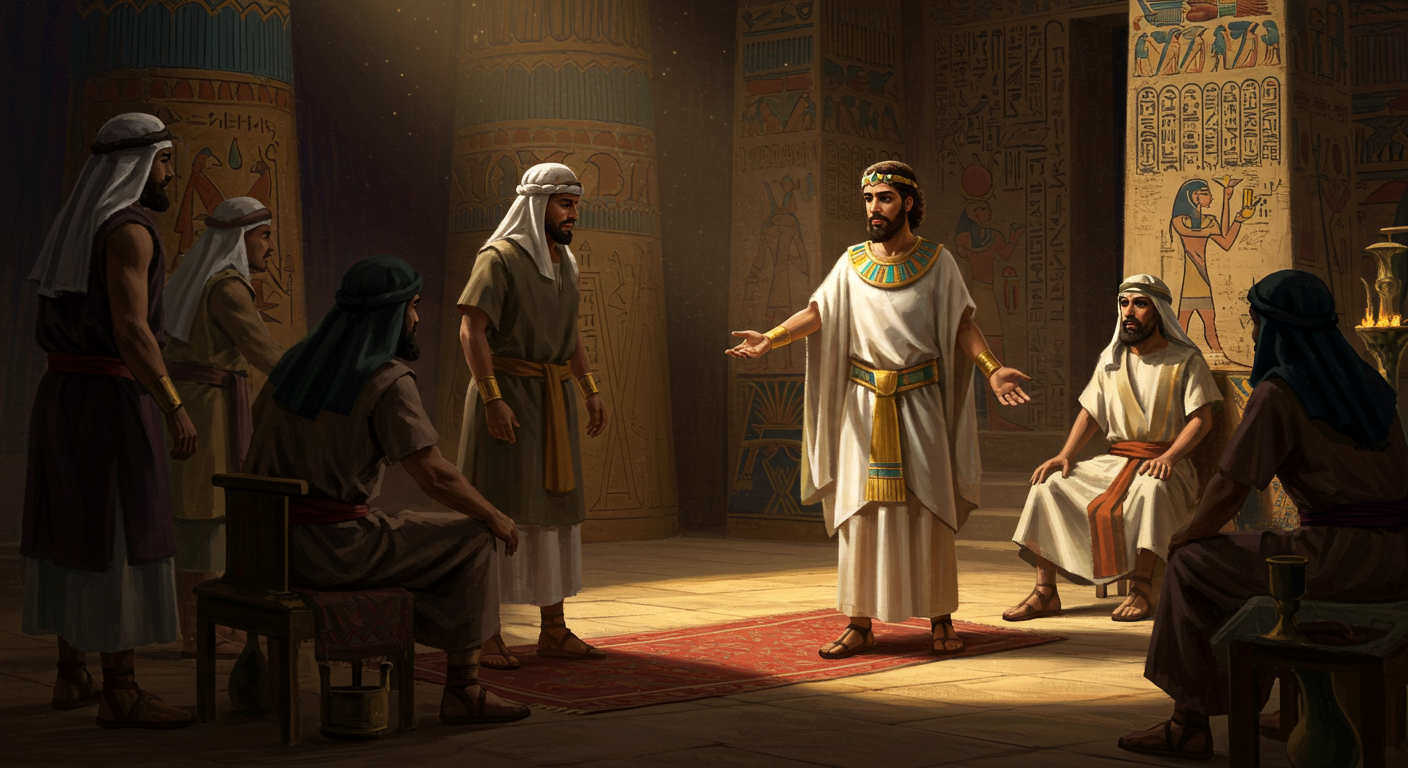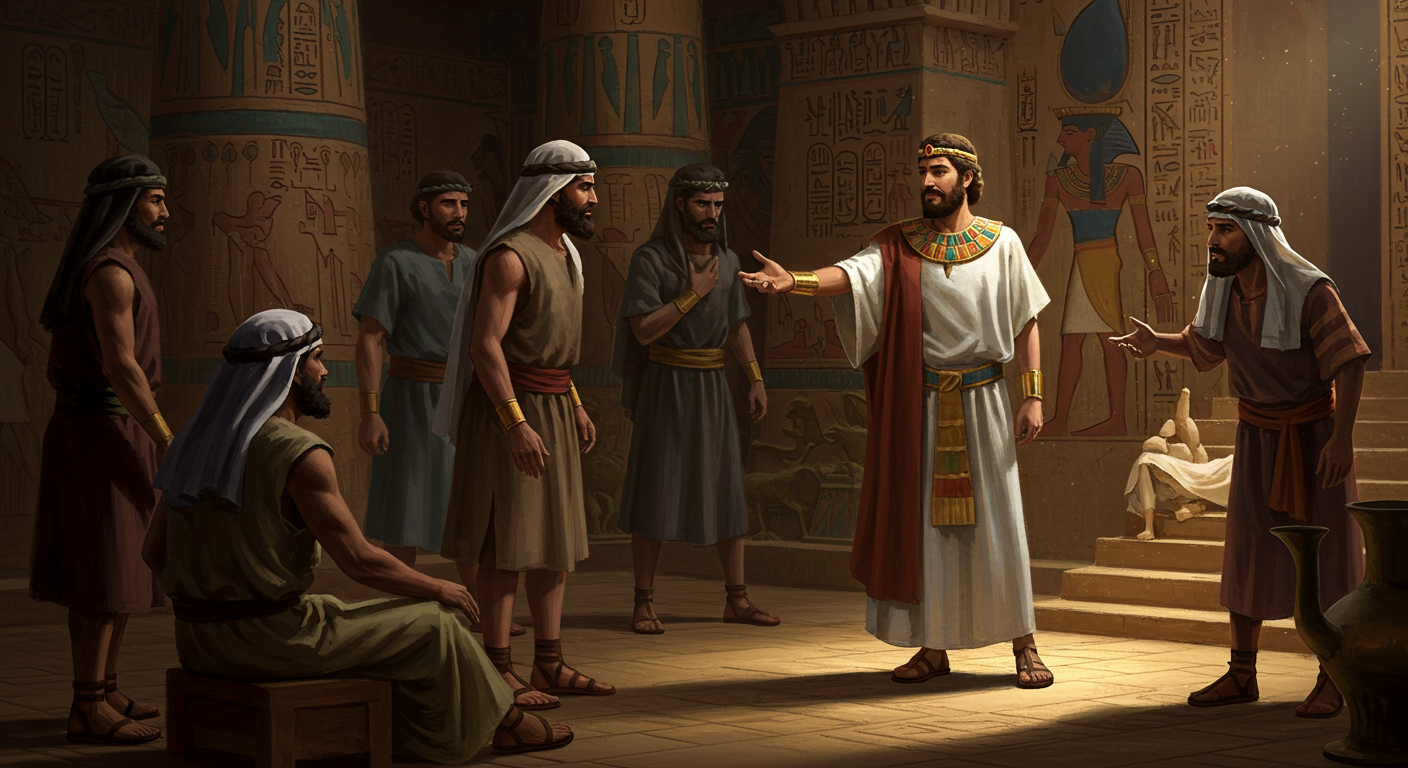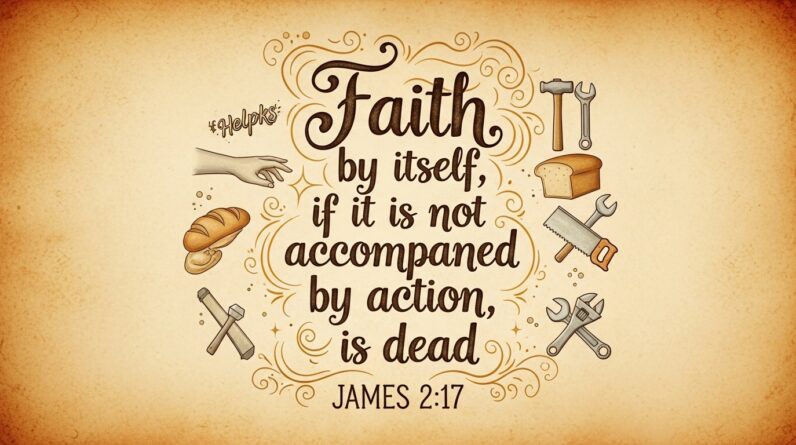Explore Joseph’s story in Genesis 45:1-15, embracing forgiveness and healing broken relationships. Dive into themes of compassion, truth, and divine purpose.
Joseph’s Forgiveness Of His Brothers – Healing Broken Relationships (Genesis 45:1-15)
Scripture Passage
In the historical and spiritual tapestry of the Bible, the story of Joseph stands out as one of profound intrigue, drama, and deep personal transformation. Genesis 45:1-15 is a pivotal passage within this narrative, where Joseph reveals himself to his brothers and extends an extraordinary grace: forgiveness. This segment speaks volumes about healing, reconciliation, and the power of letting go.

Introduction
Imagine the intensity of this moment. Joseph, once a young dreamer sold into slavery by his own brothers, now stands before them as a powerful leader in Egypt. His forgiveness is not just a personal act of liberation but a universal lesson in healing fractured relationships. Our lives, too, are often filled with moments that demand forgiveness, requiring us to mend broken ties and move forward with grace. Let’s dive into this story and uncover the transformative power of forgiveness.
Point 1: The Importance of Revealing Truth
Key Scripture: Genesis 45:3
In Genesis 45:3, Joseph declares to his brothers, “I am Joseph! Is my father still alive?” This poignant moment encapsulates the release of withheld truth and bottled-up emotions. For years, Joseph must have harbored unresolved feelings towards the brothers who betrayed him. Yet, with this revelation, he begins the healing process.
Explanation
The context of this verse is deeply rooted in emotional honesty. Decades had passed since his brothers betrayed him out of jealousy. Over these years, Joseph underwent a dramatic transformation, from the pit of slavery to the pinnacle of power. This revelation was a breaking point—an essential moment where truth and vulnerability collided.
Illustration
Consider a deep-seated family rift. Perhaps you might relate to someone holding onto a truth or emotion that’s been buried for too long, leading to silence that only widens the gap. Revealing what’s true inside us, though daunting, can be the first step towards healing that divide.
Application
Reflect on the places in your own life where truth needs revealing. It might be a hidden hurt, a grudge you’ve held, or a conversation you’ve avoided. Challenge yourself to open up, as Joseph did, clearing space for reconciliation.
Point 2: Embracing Compassion Over Retaliation
Key Scripture: Genesis 45:4-5
In Genesis 45:4-5, Joseph articulates, “Come closer to me…I am your brother Joseph, the one you sold into Egypt! And now, do not be distressed and do not be angry with yourselves for selling me here, because it was to save lives that God sent me ahead of you.” His words exude kindness rather than vengeance, instilling a sense of divine purpose in his suffering.
Explanation
This passage implores us to view past wrongs through a broader lens of God’s plan. Joseph’s choice to alleviate his brothers’ guilt, rather than indulge in retribution, highlights a critical truth: Compassion is more transformative than retaliation.
Illustration
Think of Nelson Mandela, who after decades of imprisonment, opted to pursue peace and nation-building rather than seek revenge on his oppressors. Such examples mirror the spirit of Joseph, teaching us that real power often lies in choosing mercy over bitterness.
Application
What grudges might you be holding against others? How different would life feel if, instead of hanging onto anger, you chose compassion, recognizing a higher purpose in past hurts? Extending grace not only liberates others but also transforms you.
Point 3: Accepting Divine Providence
Key Scripture: Genesis 45:7-8
Joseph identifies God’s hand in his journey, explaining, “[God] sent me ahead of you to preserve for you a remnant on earth and to save your lives by a great deliverance. So then, it was not you who sent me here, but God” (Genesis 45:7-8). This realization turns personal tragedy into communal redemption.
Explanation
Joseph reframes his suffering as part of a divine orchestration, encouraging readers to look beyond immediate pain to see God’s grander design. It is a perspective that transforms personal injustice into an opportunity for communal rescue and hope.
Illustration
Consider J.K. Rowling, who faced numerous rejections before reaching astronomical success with the Harry Potter series. Her story demonstrates how life’s setbacks often set the stage for greater success and impact, much like how Joseph’s trials positioned him to save his family and the nation.
Application
Reflect on your life experiences—both the joy and the struggles. Contemplate how these might be part of a bigger divine plan for your growth and the benefit of others. Such a perspective invites us to trust and find peace, knowing that our lives are woven into a larger tapestry.

Conclusion
As we reflect on Joseph’s remarkable capacity for forgiveness, consider how this ancient narrative speaks to modern hearts. Each of us encounters opportunities to mend broken relationships and step into the freeing embrace of forgiveness. Through Joseph’s story, we’re reminded to be truth-tellers, to choose compassion, and to trust in divine plans. Let these lessons inspire you to take bold steps toward healing and reconciliation. In the quiet of your heart, meditate on these transformative verses and allow them to guide your actions.
As a ClickBank Affiliate, I earn from qualifying purchases.








